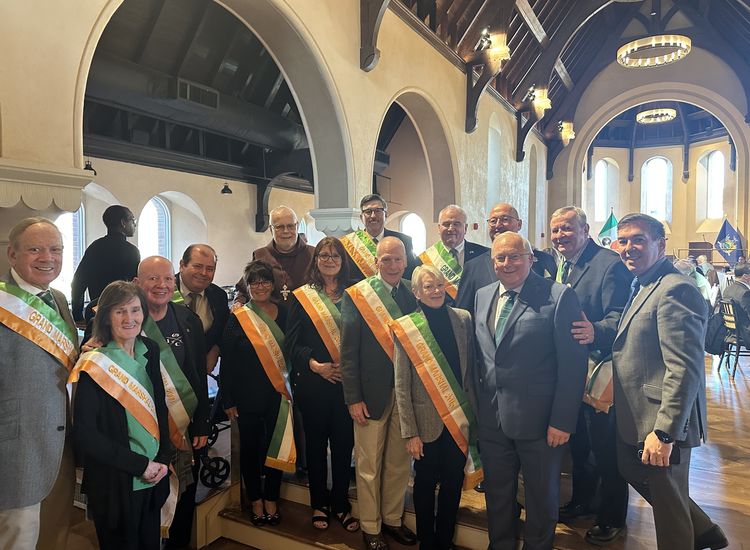Brilliant North Carolinian musician and Limerick mom
Rhiannon Giddens will be on stage at Lincoln Center next week.
By Colleen Taylor
If you haven’t yet heard of Rhiannon Giddens, whatever you do, don’t stop reading. Multi-instrumentalist and visionary voicesmith Giddens combines everything that is powerful about American R&B and everything that is stirring about Irish folk in one exquisite, cohesive sound. This is “Black is the Color” like you’ve never heard it before. Give Giddens one chance, one song, and you’ll come out the other side of those three minutes wondering why Celtic music and American blues have never meshed like this before. History meets magic in Giddens’s first full-length album, “Tomorrow is My Turn,” released one year ago this month. Since then, praise for Giddens has not lost its luster. Just last week, Giddens was nominated for the prestigious BBC Folk Singer of the Year Award. By now, her album title has become a bit of a misnomer. Giddens is no longer a musician of tomorrow—she is today’s news.
Your best introduction to Rhiannon Giddens is her performance at the concert inspired by the 2013 film “Inside Llewyn Davis.” When Giddens looks back 20 years from now (hopefully with several Grammys—she already has one—on her living room shelf), no doubt she’ll see that concert as the moment that made her career. The You Tube video can only capture a sprinkling of the magic she cast on her audience that night, but the claps, screams, and unanimous standing ovation speak for themselves. The North Carolina native Giddens sang a traditional Scottish tune, “S’iomadh Rid,” with the soulful, R&B, grassroots Americana depth that defines her character as a musician. The audience in New York was stunned, and so was the internet audience for months afterward. Giddens quite simply stole the show. She transformed and revitalized an old Gaelic tune, made it come so alive that people (some of whom had never heard a Celtic tune before) were jumping out of their seats. Traditional Gaelic folk music couldn’t have a better or more passionate advocate. But my words can’t do the magic justice. You need to hear her for yourself.
Since that definitive moment, Giddens’s name has been in greater and greater circulation. The song quickly led to the pursuit of her album, “Tomorrow Is My Turn.” Before that, Giddens, like most folk artists, had been more comfortable in ensemble settings. She did great work with her African-Americana Grammy-award winning band, Carolina Chocolate Drops. But after the Llewyn Davis concert, music producer T-Bone Burnett, perhaps the most renowned producer of Americana and folk music today, convinced Giddens to try it solo. The result was “Tomorrow Is My Turn” and a BBC Radio Folk Award Nomination. Not bad for a solo debut.
Giddens had me at “S’iomadh Rid,” so when I learned more about the feminist ethos of her album, I was over the moon. “Tomorrow Is My Turn” celebrates the female music community. The record is a collection of songs written and made famous by women, like Dolly Parton, Nina Simone, and Loretta Lynn. Giddens set out to acknowledge the women who inspired her career, the early pioneers, while also cultivating her own original sound as a female vocalist. The magic of the Llewyn Davis concert is on display in every song on this album: Giddens’ voice reaches out from the speaker and grips at your heart. My favorites are “Shake Sugaree” and “Black Is the Color,” two diverse selections that represent just two ingredients in her musical melting pot. The vocals are joyous and electric while still maintaining a 100 percent natural feel. There’s no auto-tune on this record. You just can’t make that kind of passion with a machine.
When she’s not busy stirring her audiences to the core, Giddens works full-time as an Irish mom. The singer is married to Irish musician Michael Laffan, and they live in Limerick with their two children. It’s clear why Celtic roots music has become a lasting passion for Giddens—it surrounds her familial environment. She even picks up her “cupla focal” from her young children, who attend Gaelscoil in Limerick.
Unsurprisingly, Giddens has taken Ireland and the UK by storm as much as she has the States. Just a few weeks ago she moved audiences at the Transatlantic Sessions concert in Glasgow with a tribute to David Bowie, “Ain’t It Easy.” Cara Dillon, Phil Cunningham, and John Doyle also took the stage with Giddens.
Next up, Rhiannon Giddens makes her way to Lincoln Center on Feb. 24 for “Swimming in Dark Waters,” a historical concert exploring the overlooked genres of American music: cultural resistance and immigration songs by musicians of color. For other dates on the tour and for more information generally visit rhiannongiddens.com
I’m no fortune teller, but I sense something of a career like Kate Rusby’s in Giddens. As Rusby is the “Queen of English Folkies” (and married to an Irishman, too), Giddens may well turn out to be the Queen of Transatlantic Folkies. If you’re not convinced, watch “S’iomadh Rid” on You Tube and see what all the enchantment is about.









